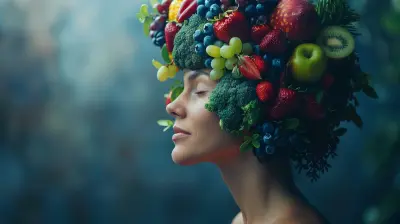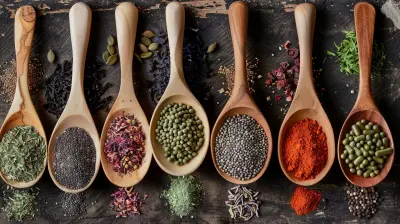Debunking Common Concerns About Nutrient Deficiency on a Plant-Based Diet
20 September 2025
Let’s face it—switching to a plant-based diet is a bold move. You’re doing it for your health, the planet, the animals—or maybe all three. But then come the questions. The raised eyebrows. The classic, “But where do you get your protein?” line.
Sound familiar?
If you’ve been thinking about adopting a plant-based lifestyle or you’re already in the thick of one, you've probably run into concerns about nutrient deficiencies. They’re everywhere, and they can be enough to rattle your confidence. But here’s the thing: most of those fears? They’re either seriously exaggerated or just plain wrong.
In this post, we’re going to roll up our sleeves and dive into the biggest nutrient-related myths about plant-based diets. We’ll separate fact from fiction, give you real talk on what to look out for, and help you feel empowered—not overwhelmed—with your food choices.
Let’s get into it.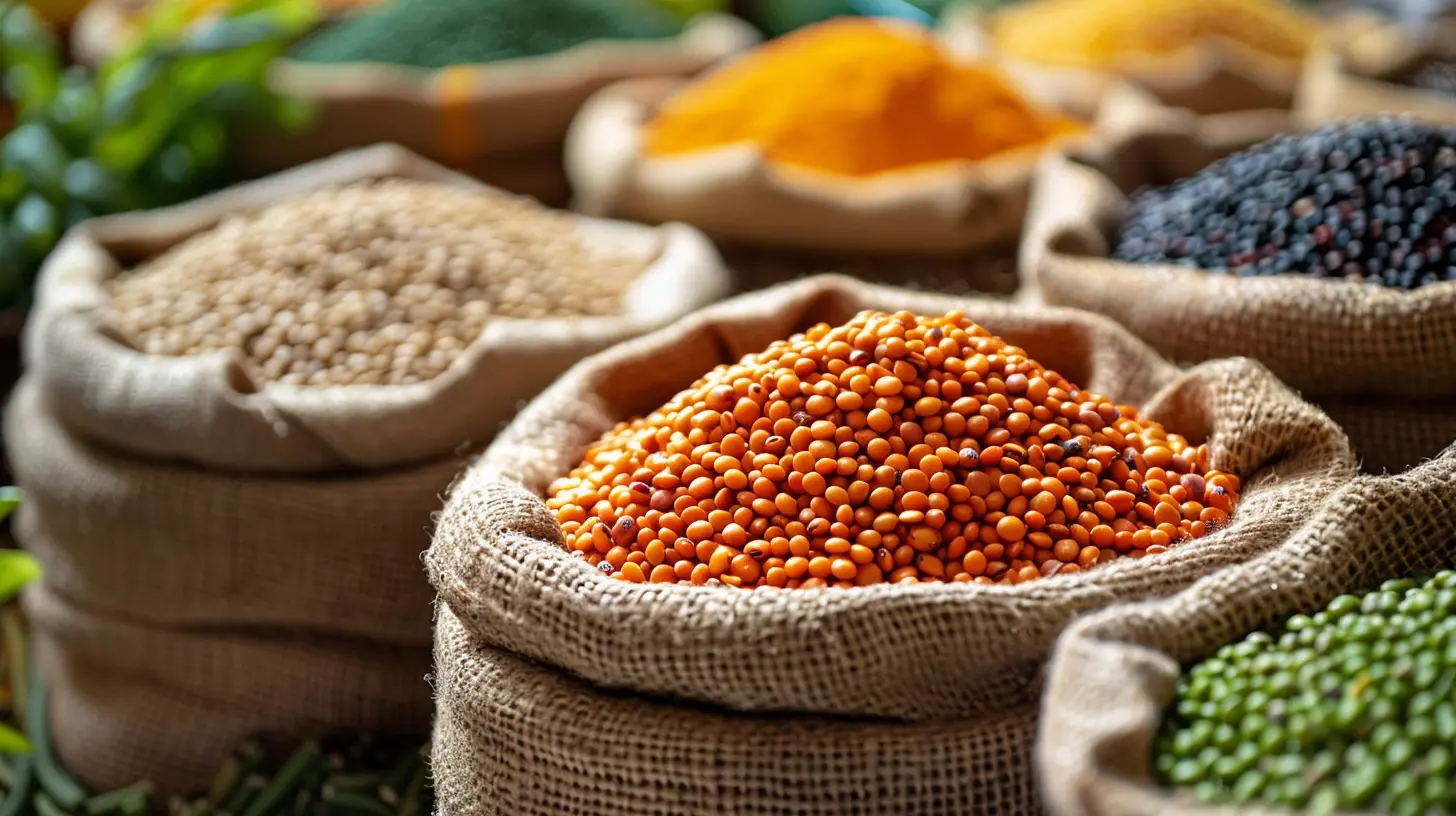
The Big Myth Behind Plant-Based Nutrient Worries
First off, let’s acknowledge something important: any diet—whether omnivore, vegetarian, vegan, or somewhere in between—can be nutritionally poor if it lacks variety and balance.The idea that plant-based diets are somehow automatically deficient? That’s just not true. But the myth sticks because of one big reason: a lot of the nutrients we typically talk about (like protein, iron, or calcium) are associated with animal products in Western diets. So when someone cuts out meat, dairy, or eggs, it triggers a kind of nutritional panic.
But panic isn’t necessary. What’s needed is planning, knowledge, and a little common sense.
Concern #1: "You Can’t Get Enough Protein on a Plant-Based Diet"
Okay, let’s tackle the elephant in the room—protein.It’s the golden child of fitness and meal plans. And while it's true that protein is essential for muscle repair, hormones, enzymes, and more, the idea that plants are protein-deficient is just flat-out wrong.
So, Where's the Protein?
Plant-based eaters get their protein from:- Lentils and beans
- Tofu, tempeh, and edamame
- Quinoa and whole grains
- Nuts and seeds
- Chickpeas and peas
Heck, even broccoli has protein.
The key isn’t pounding down steaks—it’s eating a variety of foods. Most adults only need about 0.8 grams of protein per kilogram of body weight. That’s totally doable with plants.
And here's something you might not know: most Americans (yes, even plant-based ones) eat more protein than they actually need.
So relax. You’re probably doing just fine.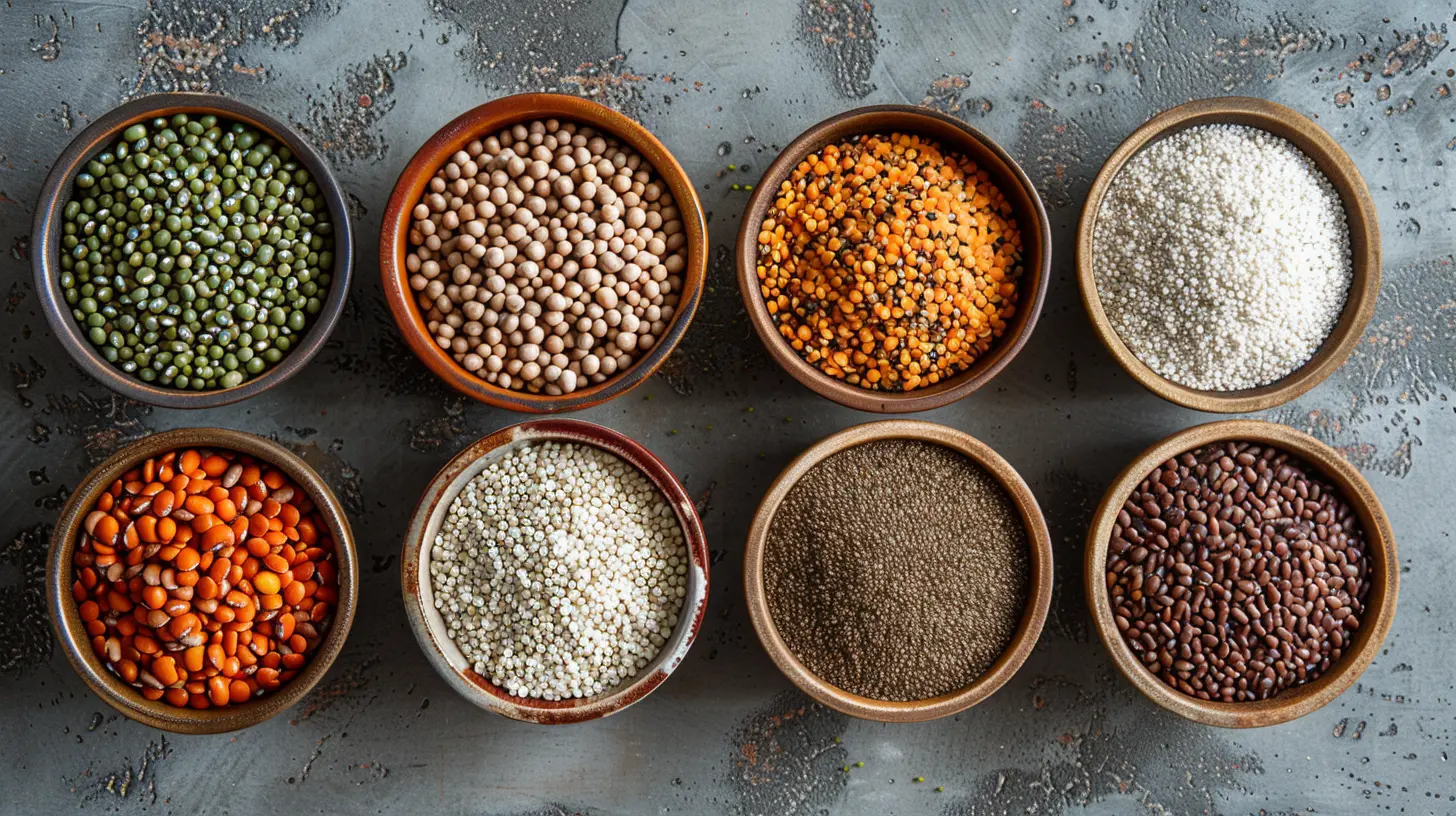
Concern #2: "But What About Iron?"
Iron is another hot topic. People often assume that since red meat is rich in iron, skipping it means you’re setting yourself up for anemia.Let’s break that down.
Heme vs Non-Heme Iron
- Animal-based iron = heme iron- Plant-based iron = non-heme iron
Non-heme iron is a bit less absorbable, but the fix is easy: pair it with vitamin C.
For example, mix lentils with tomatoes, sprinkle lemon juice on your spinach, or toss bell peppers into your stir-fry. Vitamin C enhances iron absorption like magic.
And don’t forget other plant-based iron sources:
- Lentils and kidney beans
- Tofu and tempeh
- Pumpkin seeds and chia seeds
- Dark leafy greens (like kale and Swiss chard)
- Quinoa and fortified cereals
Bottom line: iron deficiency isn’t a “vegan problem”—it’s a common issue for lots of people. And plants pack plenty of iron if you’re strategic.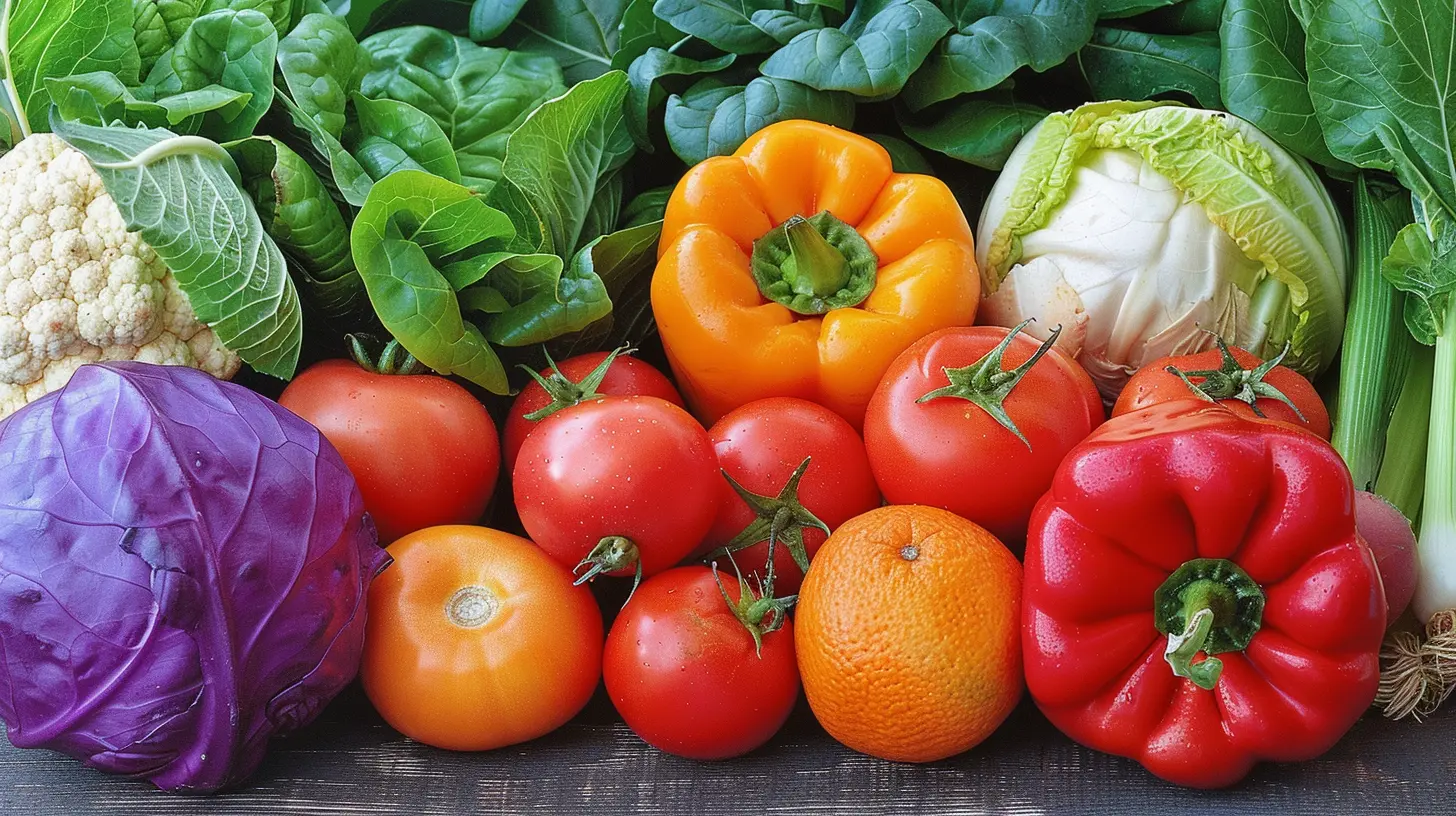
Concern #3: "Calcium Only Comes From Dairy, Right?"
Not quite.Yes, dairy is a calcium-rich food group, but that doesn’t mean it's the only game in town. A lot of plant foods are loaded with calcium too—and without the saturated fat or cholesterol.
Best Plant-Based Calcium Sources
- Fortified plant milks (almond, soy, oat)- Fortified orange juice
- Tofu set with calcium sulfate
- Broccoli, kale, and bok choy
- Almonds
- Sesame seeds and tahini
And guess what? Studies show that the calcium in some fortified plant milks is absorbed just as well (or sometimes even better) than from cow’s milk.
So nope—you don’t need dairy to keep your bones strong or your teeth healthy. Plants can handle the job just fine.
Concern #4: "Aren’t Vegans Always Low in B12?"
Alright, this one has some truth to it—but also a simple solution.Vitamin B12 is crucial for nerve function, red blood cells, and DNA synthesis. It’s made by bacteria in soil and water, and used to be naturally found in plants.
But today? Our food is way too clean. And since B12 is mostly found in animal products, yes—vegans do need to pay attention here.
The Fix: B12 Supplements or Fortified Foods
Don’t stress. Taking a B12 supplement is easy, cheap, and effective. You can also get B12 from:- Fortified cereals
- Fortified plant milks
- Nutritional yeast (a vegan’s best friend)
Many people eating animal products STILL end up low in B12, especially older adults. So this isn’t just a vegan issue—it’s a modern lifestyle issue.
Taking a supplement isn’t a sign of weakness. It's smart planning. Like using GPS instead of blindly guessing directions.
Concern #5: "Vitamin D Deficiency Is a Vegan Thing"
Not quite. Vitamin D deficiency is super common—and not just in vegans.Why? Well, most of us don’t get enough sunlight (especially in winter or northern areas). And vitamin D isn’t naturally abundant in most foods—plant or animal.
Your Options:
- Get safe sun exposure (15-30 minutes a few times a week, depending on your skin tone and location)- Take a vegan-friendly D2 or D3 supplement
- Eat fortified foods like plant milks and cereals
And yes—vitamin D3 is now available from lichen, making it 100% plant-based. So you’ve got choices.
Concern #6: "Omega-3s Only Come From Fish"
Another myth that refuses to die.Omega-3s are essential fatty acids, and sure, fish are a big source of EPA and DHA. But they’re not the only source—and they aren’t where omega-3s originate in the food chain.
Fish get their omega-3s from algae. So why not go straight to the source?
Plant-Based Omega-3 Sources:
- Flaxseeds and flax oil- Chia seeds
- Walnuts
- Hemp seeds
- Algal oil supplements (yes, made from algae!)
Your body can convert ALA (the type of omega-3 found in plants) into EPA and DHA, though the conversion rate is low—which is why many plant-based folks wisely opt for an algal oil supplement.
Simple. No fishy business required.
Concern #7: "You’ll Have Weak Bones Without Animal Products"
Time to put this one to rest.Bone health is about more than calcium. It involves magnesium, potassium, vitamin D, vitamin K, and even resistance training.
Plant-based diets are rich in anti-inflammatory, alkaline foods like fruits and veggies, which actually help maintain bone density.
Keys to Strong Bones on a Plant-Based Diet:
- Eat calcium-rich foods (fortified milks, greens, tofu)- Get enough vitamin D
- Do weight-bearing exercises (like walking, yoga, strength training)
- Avoid excessive sodium and soda
Plenty of long-time vegans have strong, healthy bones. It’s not about what you're avoiding—it's about what you're including.
A Quick Word on Iodine
Iodine isn't always top of mind, but it’s important for thyroid function. Since dairy and seafood are big iodine sources, plant-based folks need to be intentional.Your Options:
- Use iodized salt- Eat seaweed (like nori, wakame, or dulse)
- Take a supplement if needed
Just be cautious—too much iodine can be as risky as too little. Moderation is key.
The Truth? Plant-Based Diets Can Be Exceptionally Nutritious
Let’s be clear: there’s no magic diet. Every eating pattern has pros and cons. But with a little mindfulness and variety, plant-based diets can meet (and often exceed) nutritional needs.They offer:
- Lower saturated fat
- More fiber
- Abundant antioxidants
- Anti-inflammatory benefits
- Reduced risk of chronic diseases
And yes—with the right approach, they can supply all essential nutrients.
So the next time someone hits you with, “But don’t you need meat for protein?”—you’ll be ready with the facts.
Final Thoughts: You’ve Got This
Choosing a plant-based lifestyle doesn’t mean compromising your health. It means being aware, informed, and intentional.Yes, there are nutrients to watch—but isn’t that true for every type of diet?
With whole foods, occasional supplements, and a little know-how, a plant-based diet can be not just sufficient—but superior for your health and well-being.
So shake off the scare tactics. Trust your choices. And remember: plants have your back.
all images in this post were generated using AI tools
Category:
Plant Based DietAuthor:

Jackson Mahoney
Discussion
rate this article
1 comments
Danica Butler
This article effectively addresses prevalent misconceptions surrounding nutrient deficiencies in plant-based diets, providing clear evidence and practical tips. It empowers readers to embrace plant-based eating confidently, emphasizing balanced nutrition and diverse food choices.
October 11, 2025 at 2:57 AM

Jackson Mahoney
Thank you for your thoughtful feedback! I'm glad you found the article informative and empowering for those exploring plant-based diets.
